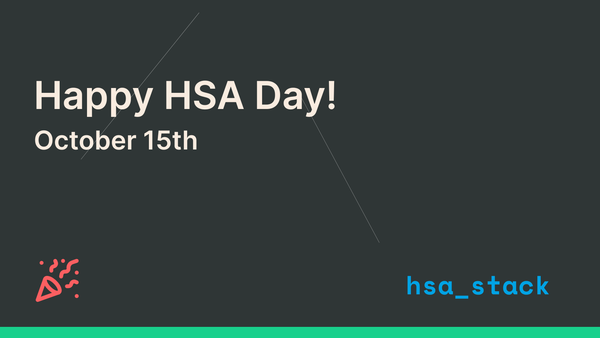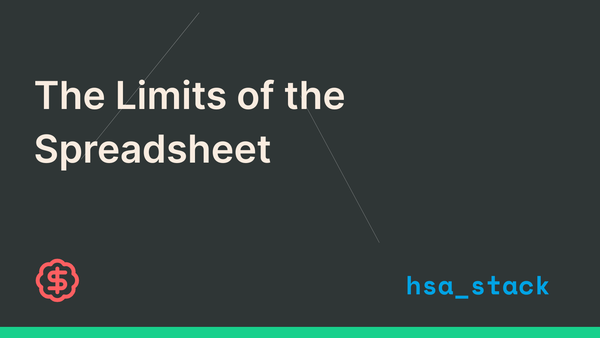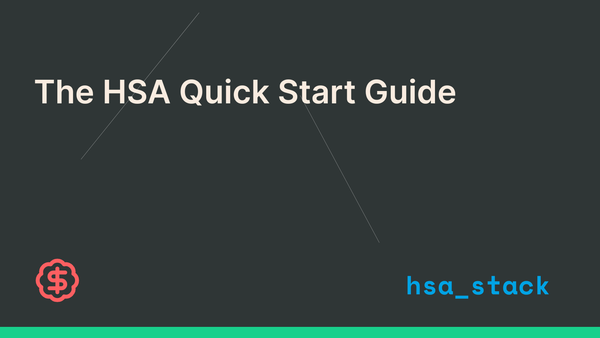Is That Expense HSA-Eligible? A Clear Guide to Using Your HSA Wisely
HSA eligibility can be tricky. This simple guide helps you understand what medical expenses typically qualify, so you can use your HSA with confidence.
Health Savings Accounts (HSAs) are fantastic tools for managing healthcare costs and building long-term savings. One of the most common questions we see is: "Can I use my HSA for this?" It's a great question! Understanding what counts as a "qualified medical expense" is key to using your HSA effectively and compliantly.
Think of qualified medical expenses as the costs for diagnosing, treating, or preventing illness or injury. While the official IRS guidelines (see Publication 502 for the exhaustive list) are the ultimate source, let's break down some common examples to give you a clearer picture.
Generally, You CAN Use Your HSA For:
- Doctor's Visits & Co-pays: Seeing your primary care physician, specialists, or paying co-pays.
- Prescription Medications: FDA-approved drugs prescribed by your doctor.
- Dental Treatment: Exams, cleanings, fillings, braces, and other non-cosmetic dental work.
- Vision Care: Eye exams, prescription eyeglasses, contact lenses, and lens solution.
- Hospital Services: Inpatient and outpatient services, including surgery (when not purely cosmetic).
- Mental Health Care: Visits to psychologists or psychiatrists, and prescribed treatments.
- Substance Abuse Treatment: Costs associated with inpatient treatment or outpatient care programs.
- Certain Medical Equipment: Items like crutches, walkers, blood sugar test kits, and hearing aids.
- Transportation for Medical Care: Essential travel expenses to receive medical care (e.g., mileage, bus fare).
- Acupuncture & Chiropractic Care: Treatments from licensed practitioners.
- Over-the-Counter (OTC) Medications: Many common OTC drugs are now eligible without a prescription, thanks to recent legislative changes. This includes pain relievers, cold medicines, and allergy products. Always good to double-check specific items!
- Menstrual Care Products: Tampons, pads, and other similar items.
Often, You CANNOT Use Your HSA For:
- Cosmetic Surgery: Procedures that are not medically necessary (e.g., teeth whitening, cosmetic enhancements).
- General Health & Wellness (Usually): Gym memberships (unless prescribed for a specific medical condition), non-prescribed vitamins or supplements for general well-being.
- Insurance Premiums (with exceptions): Generally, you can't pay your regular health insurance premiums with your HSA. However, there are exceptions, such as COBRA continuation coverage, long-term care insurance (up to certain limits), or health insurance premiums while receiving unemployment benefits.
- Non-prescription Drugs (unless specifically allowed): While many OTCs are now eligible, items like toiletries (e.g., toothpaste, shampoo) or dietary supplements for general health typically are not.
Making it Simpler
Feeling a bit more confident? The key is that an expense should generally be for treating or preventing a physical or mental defect or illness.
When you're managing your HSA, keeping track of these eligible expenses is vital. This ensures you can reimburse yourself correctly, or pay for them directly from your HSA, all while enjoying those valuable tax benefits. Having a system to capture what you spent, when, and for what service will make your financial life much smoother, especially when it comes to taxes or if you ever need to verify your spending.
At hsa_stack, we're passionate about making HSAs easier to understand and use. Clear, organized records for all your qualified medical expenses mean you can confidently tap into the full power of your account.
Ready to take the guesswork out of your HSA?




